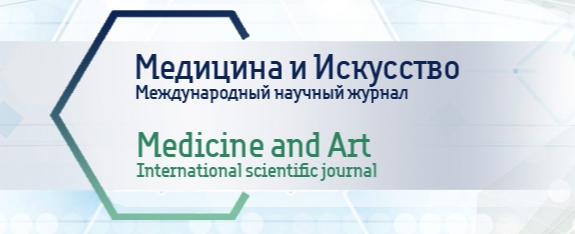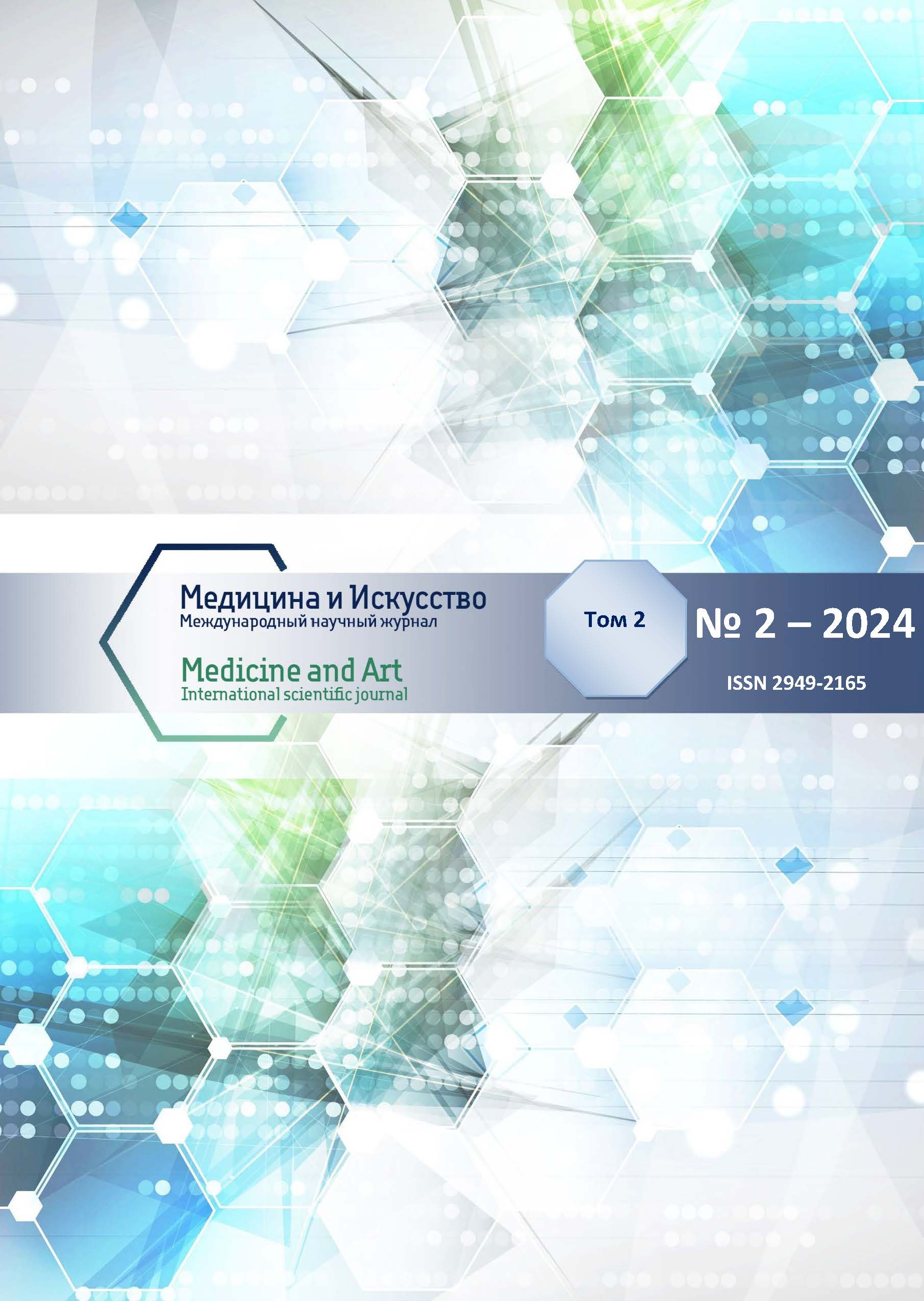Moscow, Russian Federation
UDC 004
UDC 681.84
The article presents an innovative technology for the correction of neuroses, developmental disorders and stress conditions in children using a computerized complex for Music-Color Therapy actualized through a special Interactive Healing Doll «Jeremy» with remote control. At the same time, a comparative analysis of the existing experience of the using musical toys in children's correctional practice with the technical features and advantages was carried out.
stress, neuroses, autism, doll, Bluetooth, computer, psychotherapy, music therapy
1. Bezrukih, M.M. Zdorov'esberegayuschaya shkola / M.M. Bezrukih. – M.: MGPI, 2008. – 222 s. [Bezrukikh, M.M. Health-saving school / M.M. Armless. – M.: MGPI, 2008. – 222 p.] (In Russian).
2. Pis'mo Ministerstva obrazovaniya Rossii ot 17 maya 1995 g. № 61/19-12 «O psihologo-pedagogicheskih trebova¬niyah k igram i igrushkam v sovremennyh usloviyah» // Vestn. obrazovaniya. 1995. № 7. [Letter of the Ministry of Education of Russia dated May 17, 1995 №. 61/19-12 «On psychological and pedagogical requirements for games and toys in modern conditions» // Vestn. education. 1995. No. 7.] (In Russian).
3. Sokolova, A.V. Igry i igrushki dlya detey rannego i doshkol'nogo vozrasta: ucheb.-metod. posobie / A.V. Sokolova. – Nizhniy Tagil: Nizhnetagil'skiy gosudarstvennyy social'no-pedagogicheskiy institut (filial) FGAOU VO «Rossiyskiy gosudarstvennyy professional'no-pedagogicheskiy universitet», 2018. – 96 s. [Sokolova, A.V. Games and toys for children of early and preschool age: educational method. allowance / A.V. Sokolova. – Nizhny Tagil: Nizhny Tagil State Social Pedagogical Institute (branch) of the Federal State Autonomous Educational Institution of Higher Education “Russian State Vocational Pedagogical University”, 2018. – 96 p.] (In Russian).
4. Vygotskiy, L. S. Pedagogicheskaya psihologiya / L. S. Vygotskiy. - Moskva: Pedagogika-press, 1999. - 533, [1] s.; 21 sm. - (Psihologiya: klassicheskie trudy). [Vygotsky, L. S. Educational psychology / L. S. Vygotsky. - Moscow: Pedagogy-press, 1999. - 533, [1] p.; 21 cm. - (Psychology: classic works).] (In Russian).
5. Smirnova E.O. Sovremennaya detskaya subkul'tura // Konsul'tativnaya psihologiya i psihoterapiya. 2015. Tom 23. № 4. S. 25–35. doihttps://doi.org/10.17759/cpp.2015230403 Smirnova E.O. Modern children's subculture // Consultative psychology and psychotherapy. 2015. Vol. 23. No. 4. pp. 25–35.
6. Abramenkova, V.V. Vo chto igrayut nashi deti? Igrushka i AntiIgrushka / V.V. Abramenkova. - M.: Yauza, Eksmo, Lepta Kniga, 2006. - 640 s. [Abramenkova, V.V. What do our children play? Toy and Anti-Toy / V.V. Abramenkova. - M.: Yauza, Eksmo, Lepta Book, 2006. - 640 p.] (In Russian).
7. Ivanova E.S. Psihologicheskiy analiz specifiki izmeneniya obraza kukly // Vestn. TGU. 2011. Vyp. 12 (104). S. 209–213. [Ivanova E.S. Psychological analysis of the specifics of changing the image of a doll // Vestn. TSU. 2011. Issue. 12 (104). pp. 209–213.] (In Russian).
8. Razumov A.N., Shushardzhan S.V. Metody muzykal'noy terapii (posobie dlya vrachey). M., izd. RNCVM i K MZ RF, 2002. 29 c. [Razumov A.N., Shushardzhan S.V. Music therapy methods (a manual for doctors). Moscow, izd. RNCVM i K MZ RF, 2002. 29 p.] (In Russian).
9. Shushardzhan S.V. Medicina i iskusstvo: paradigma sinergii // Medicina i Iskusstvo. 2023; 1(1):10-33. DOI: https://doi.org/10.29039/ 2949-2165- 2023-1-1-10-33. [Shushardzhan S.V. Medicine and art: the paradigm of synergy. Medicine and Art. 2023; 1(1):10-33.]. (In Russian). DOI: https://doi.org/10.29039/2949-2165-2023-1-1-10-33
10. Blum, K. Reward deficiency syndrome / K. Blum, E.R. Braverman, J.G. Cull, D.E. Comings // J. Am. Sci. – 1996. – Vol.84. – 132 p.
11. Blum, K. Reward deficiency syndrome: a biogenetic model for the diagnosis and treatment of impulsive,addictive, and compulsive behaviors / K. Blum, E.R. Braverman, J.M. Holder // J. Psychoactive Drugs. – 2000. –Vol.32. – P.1–112.
12. Blum, K. The D2 dopamine receptor gene as a determinant of reward deficiency syndrome / K. Blum, R.C. Wood, P.J. Sheridan // J. Royal Soc. Med. – 1996. – Vol.89, N7. – P.396–400.
13. Blum, K. Studies of dopaminergic genes in reward deficiency syndrome (RDS) Subjects: selecting appropriate phenotypes for reward dependence behaviors / K. Blum, L. Amanda, C. Chen, M. Oscar- Berman // Int. J. Environ. Res. Public Health. – 2011. – Vol.8. – P.4425–4459. www.mdpi.com/ journal/ijerph
14. Blum, K. «Liking» and «Wanting» linked to reward deficiency syndrome (RDS): hypothesizing differential responsivity in brain reward circuitry / K.Blum, E.Gardnerb, M.Oscar-Bermanc, M.Golda // J. Curr. Pharm. Design. – 2011. – Vol.17. – P.1–6.
15. Shushardzhan S.V., Petoukhov S.V. (2020) Engineering in the Scientific Music Therapy and Acoustic Biotechnologies. In: Hu Z., Petoukhov S., He M. (eds) Advances in Artificial Systems for Medicine and Education III. AIMEE 2019. Advances in Intelligent Systems and Computing, vol 1126, p.273-282. Springer, Cham
16. Hu, Z.B., Petoukhov, S.V.: Generalized crystallography, the genetic system and biochemi cal esthetics. Struct. Chem. 28(1), 239–247 (2017). https://doi.org/10.1007/s11224-016-0880-0.
17. Angadi, S.A., Hatture, S.M.: Biometric person identification system: a multimodal approach employing spectral graph characteristics of hand geometry and palmprint. Int. J. Intell. Syst. Appl. (IJISA), 3, 48–58 (2016). http://www.mecs-press.org/ijisa/ijisa-v8-n3/IJISA-V8-N3-6.
18. Hata, R., Akhand, M.A.H., Islam, M.M., Murase, K.: Simplified real-, complex-, and quaternion-valued neuro-fuzzy learning algorithms. Int. J. Intell. Syst.Appl. (IJISA), 10(5),1–13 (2018). https://doi.org/10.5815/ijisa.2018.05.01
19. Awadalla, M.H.A.: Spiking neural network and bull genetic algorithm for active vibration control. Int. J. Intell. Syst. Appl. (IJISA), 10(2), 17–26 (2018). https://doi.org/10.5815/ijisa. 2018.02.02
20. Shushardzhan S.V. The method of neuro-hormonal correction and rejuvenation with the help of musical-acoustic effects. Patent No. 2518538. Registered in the State Register of Inventions of the Russian Federation (2014)
21. Eremina N.I. Detskaya muzyko-art-terapiya / N.I. Eremina; pod red. S.V. Shushardzhana. — M.: KnigIzdat, 2024. - 236 s. [Eremina N.I. Children's music and art therapy / N.I. Eremina; edited by S.V. Shushardzhan. - M.: KnigIzdat, 2024. - 236 p.] (In Russian).








